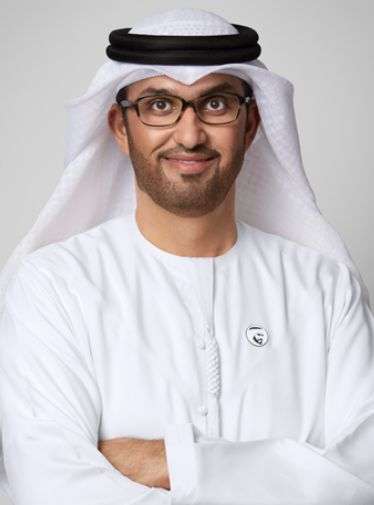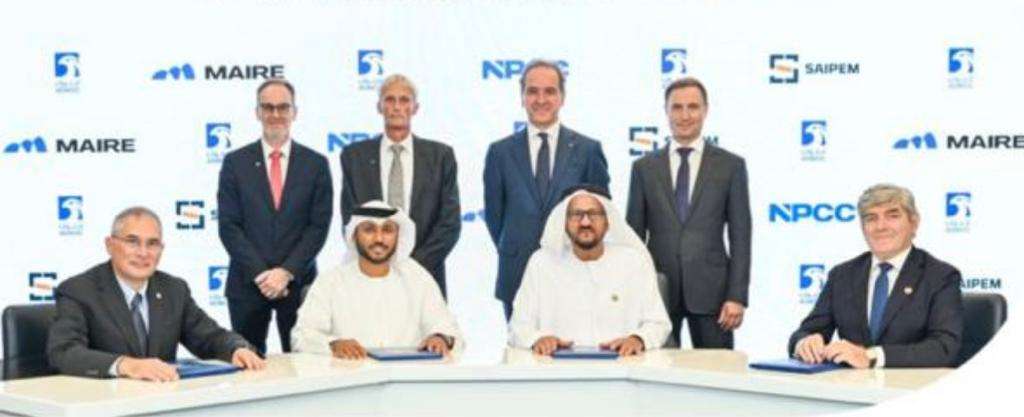Two huge orders, awarded to Italian companies by one of the world’s largest operators in the oil and gas sector, re-launch a historic sector of the country’s system and boost stock markets. Arab Emirates increasingly central hub for Made in Italy
by Guido Talarico
 In Abu Dhabi for Adipec and for the opening of Associated Medias’ new headquarters in the emirates, we discover almost by chance two mega orders brought home by Italian companies, namely Maire and Saipem. In fact, the Abu Dhabi National Oil Company (ADNOC), one of the world’s largest oil and gas companies, has announced that it has awarded these two companies contracts worth some $16.94 billion, for a gas project that aims to operate – first in the world, they claim – with zero net carbon dioxide emissions. Maire, which is an engineering company controlled by Fabrizio di Amato, and Saipem, the subsidiary of Eni and Cdp Equity spa that operates as an energy services group, explained in two separate releases that they had respectively obtained $8.7 billion and $4.1 billion contracts from ADNOC for the project.
In Abu Dhabi for Adipec and for the opening of Associated Medias’ new headquarters in the emirates, we discover almost by chance two mega orders brought home by Italian companies, namely Maire and Saipem. In fact, the Abu Dhabi National Oil Company (ADNOC), one of the world’s largest oil and gas companies, has announced that it has awarded these two companies contracts worth some $16.94 billion, for a gas project that aims to operate – first in the world, they claim – with zero net carbon dioxide emissions. Maire, which is an engineering company controlled by Fabrizio di Amato, and Saipem, the subsidiary of Eni and Cdp Equity spa that operates as an energy services group, explained in two separate releases that they had respectively obtained $8.7 billion and $4.1 billion contracts from ADNOC for the project.
To give references on the magnitude and importance of these contracts signed by the Italian companies, we will recall that, in the financial year 2022, the Saipem Group realised revenues of 9,980 million euros, marking a +53% compared to 2021, and an EBITDA of 595 million euros, compared to a negative figure of 1,274 million euros in 2021. In short, very significant growth that the stock market immediately began to appreciate.
 The Maire Technimont Group has perhaps done even better in proportion if we consider that its 2022 revenue amounted to €3,463.7 million, up 20.9%, and the Group’s consolidated balance sheet also in 2022 closed with an operating profit of €38.9 million and a consolidated net profit of €90.4 million. In this case, we are in fact even faced with an order amounting to twice the turnover in 2022.
The Maire Technimont Group has perhaps done even better in proportion if we consider that its 2022 revenue amounted to €3,463.7 million, up 20.9%, and the Group’s consolidated balance sheet also in 2022 closed with an operating profit of €38.9 million and a consolidated net profit of €90.4 million. In this case, we are in fact even faced with an order amounting to twice the turnover in 2022.
The two engineering, procurement and construction (EPC) contracts were signed for the Hail and Ghasha Offshore Development project, which will produce 1.5 billion standard cubic feet per day (bscfd) of gas by the end of the decade. ADNOC said the offshore EPC contract, worth about $8.2bn, was awarded to a joint venture between Saipem and National Petroleum Construction Company (NPCC), owned by Abu Dhabi investment fund ADQ.
MAIRE’s onshore EPC contract is worth about $8.74bn and includes the recovery and management of CO2 and sulphur, ADNOC reported. MAIRE will focus on two gas processing units, three sulphur recovery sections, associated facilities and external infrastructure, as well as export pipelines, the company said. Saipem and NPCC will build four drilling centres and one processing plant on artificial islands, as well as various offshore facilities and more than 300km (186 miles) of subsea pipelines, Saipem said.
Shares in MAIRE were up about 4 per cent as of 07:30 GMT, while Saipem’s were up about 4 per cent. “Natural gas is an important source of transition and ADNOC will continue to responsibly exploit its gas resources to enable gas self-sufficiency for the UAE, increase our export capacity and support global energy security,” Abdulmunim Al Kindy, ADNOC’s executive director for upstream production, said in a statement.
 The Hail and Ghasha project will capture 1.5 million tonnes per year (mtpa) of CO2, bringing ADNOC’s committed investment in CO2 capture capacity to nearly 4 mtpa, the statement said. ADNOC – which in July advanced its net zero carbon dioxide emissions target to 2045 – announced last week that it plans to increase its CO2 capture capacity to 10 mtpa by 2030.
The Hail and Ghasha project will capture 1.5 million tonnes per year (mtpa) of CO2, bringing ADNOC’s committed investment in CO2 capture capacity to nearly 4 mtpa, the statement said. ADNOC – which in July advanced its net zero carbon dioxide emissions target to 2045 – announced last week that it plans to increase its CO2 capture capacity to 10 mtpa by 2030.
On Tuesday, ADNOC also announced it would install a 10 mtpa CO2 capture unit produced by UK-based Carbon Clean at a nitrogen fertiliser plant owned by Fertiglobe, a joint venture between ADNOC and Dutch fertiliser company OCI. The United Arab Emirates (UAE) will host the UN climate conference COP28 from 30 November to 12 December. Its acting president is ADNOC’s CEO, Sultan al-Jaber, a choice that has drawn criticism from climate activists.
(Associated Medias) – All rights reserved
